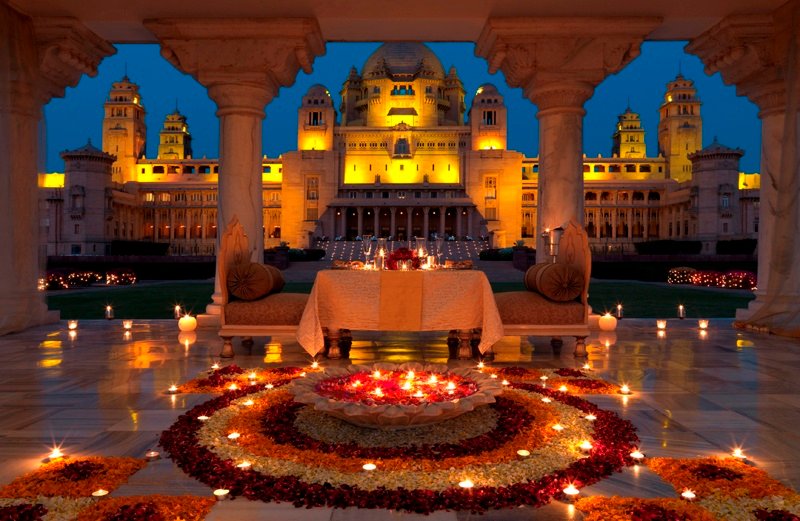How Jaipur’s Cultural Heritage Influences Wedding Planning: Insights from Local Planners
Jaipur, the capital city of Rajasthan, is often referred to as the “Pink City” due to its distinct pink-hued architecture. Known for its royal palaces, grand forts, and colorful bazaars, Jaipur is a cultural treasure trove. It comes as no surprise that the city has evolved into one of India’s premier wedding destinations. But beyond its architectural allure, Jaipur’s rich cultural heritage plays a vital role in shaping wedding planning. Local planners draw deeply from this heritage to create unforgettable weddings that blend tradition with modern sensibilities. This article explores how Jaipur’s cultural heritage influences for destination wedding in jaipur, based on insights from local planners.
The Allure of Royal Venues
A significant aspect of Jaipur’s wedding scene is the abundance of royal palaces and heritage properties. Venues such as the City Palace, Rambagh Palace, and Samode Palace offer a glimpse into the grandeur of Rajputana royalty. These historic venues lend themselves perfectly to destination weddings. As noted by local planners, the opulence and history of these locations create an unparalleled setting for wedding ceremonies.
Unlike modern banquet halls, these palaces provide a sense of place that carries a deep cultural resonance. Couples who choose Jaipur as their wedding destination often seek to recreate the royal wedding experience, which includes grand processions, traditional attire, and lavish feasts. According to one planner, “When couples opt for a wedding in a palace, they are not just choosing a venue, but they are immersing themselves in the history and the legacy of Rajasthan.”
However, the challenge for planners lies in blending these royal settings with modern amenities. While the palaces are steeped in history, local planners often have to ensure that the venues meet contemporary expectations in terms of logistics, technology, and comfort. The goal is to offer a seamless experience that celebrates heritage without compromising on luxury and convenience.
Traditional Rituals and Rajput Customs
Rajasthan, and Jaipur in particular, is known for its age-old customs and rituals, many of which are incorporated into wedding celebrations. The influence of the city’s cultural heritage is especially evident in the rituals observed during weddings. Rajput weddings, for instance, are steeped in tradition, from the Ganpati Sthapana to the Vidaai ceremony. Local wedding planners frequently adapt these rituals for both local and international couples looking to experience the richness of Rajasthani culture.
One significant tradition is the Baraat, where the groom arrives on a decorated horse or elephant, accompanied by musicians and dancers. In Jaipur, planners often enhance this ritual by incorporating elements such as traditional Rajasthani folk music, fire dancers, and decorated camels. The grandeur and symbolism of these processions are rooted in the city’s historical connection to the Rajput kings, whose weddings were similarly marked by public celebration and display.
Another unique cultural element is the use of Rajasthani folk art and decor, including Pichwai paintings, vibrant textiles, and local crafts. Local wedding planners incorporate these design elements into wedding décor, creating an environment that reflects the region’s artistic traditions. As one local planner noted, “Weddings in Jaipur aren’t just about celebrating a couple’s union; they’re about showcasing the beauty of Rajasthani art and culture.”
Culinary Heritage and Rajasthani Feasts
The cultural heritage of Jaipur also manifests itself in the culinary offerings at weddings. Traditional Rajasthani cuisine is renowned for its rich flavors and unique dishes such as Dal Baati Churma, Laal Maas, and Gatte ki Sabzi. Food plays a significant role in weddings, and planners often work closely with chefs to curate menus that reflect the local culinary heritage.
Local wedding planners emphasize the importance of incorporating authentic Rajasthani dishes into wedding banquets. “Couples who choose Jaipur for their wedding want to give their guests a taste of the region—literally,” says a local caterer. From multi-course meals to elaborate dessert spreads, the focus is on offering guests a sensory experience rooted in local flavors.
Another growing trend is the inclusion of traditional cooking methods, such as cooking in earthen pots over an open flame, which enhances the authenticity of the dishes. Wedding planners are increasingly integrating these techniques into the culinary aspect of weddings, emphasizing that food is not just nourishment but a representation of the city’s culture.
Jaipur’s Artisans and Craftspeople
Incorporating local craftsmanship into weddings is another way Jaipur’s heritage influences planning. From the bride’s attire to the wedding décor, the city’s artisanal traditions are frequently showcased. Jaipur is famous for its block-printed textiles, hand-crafted jewelry, and meenakari work. Wedding planners often collaborate with local artisans to provide couples with unique, customized elements that reflect the region’s artistic legacy.
Brides frequently opt for traditional Rajasthani attire, such as bandhani sarees or lehengas adorned with gota patti work. Jewelry featuring Kundan and Polki designs, crafted by Jaipur’s expert artisans, further enhances the traditional aesthetic of the wedding. According to one planner, “The appeal of Jaipur as a wedding destination isn’t just the location; it’s the artistry and craftsmanship that make each wedding unique.”
The Future of Jaipur’s Wedding Scene
As Jaipur continues to grow in popularity as a wedding destination, local planners are tasked with balancing heritage and modernity. While the city’s cultural legacy is central to wedding planning, there is also increasing demand for customization and innovation. Destination weddings in Jaipur are no longer limited to traditional themes; couples are looking for a fusion of old and new, blending Rajasthani heritage with contemporary trends.
Conclusion
In conclusion, Jaipur’s cultural heritage plays a pivotal role in shaping its wedding planning industry. The city’s royal palaces, traditional customs, rich culinary offerings, and artisanal craftsmanship provide an unparalleled backdrop for weddings that blend opulence with cultural depth. Local planners skillfully weave these elements into wedding celebrations, creating experiences that are not only visually stunning but also deeply rooted in Rajasthan’s history and traditions. As Jaipur continues to evolve as a premier wedding destination, the challenge and opportunity lie in maintaining this delicate balance between heritage and modernity, ensuring that every wedding reflects both the city’s timeless legacy and contemporary desires.



